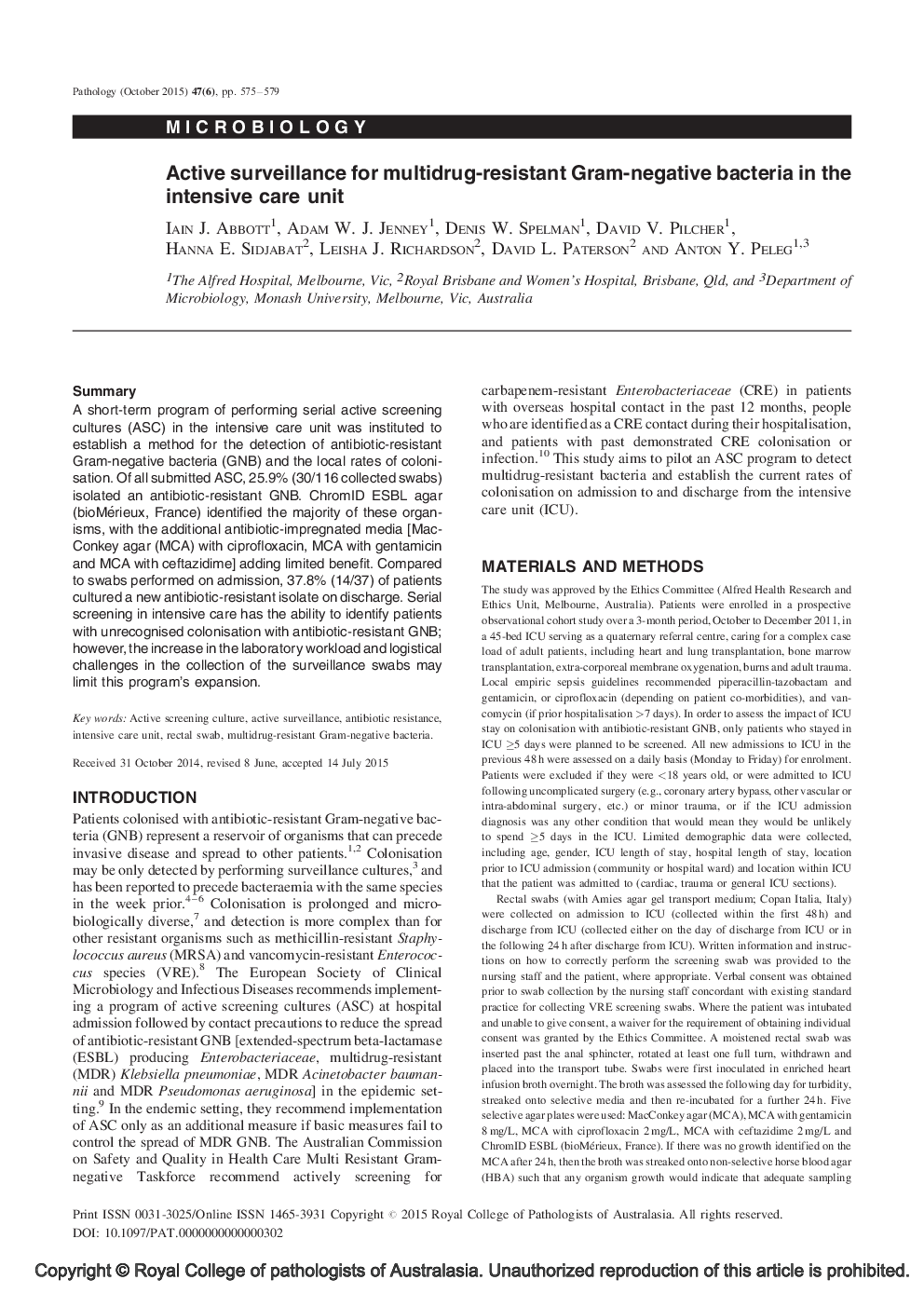| Article ID | Journal | Published Year | Pages | File Type |
|---|---|---|---|---|
| 10255010 | Pathology | 2015 | 5 Pages |
Abstract
A short-term program of performing serial active screening cultures (ASC) in the intensive care unit was instituted to establish a method for the detection of antibiotic-resistant Gram-negative bacteria (GNB) and the local rates of colonisation. Of all submitted ASC, 25.9% (30/116 collected swabs) isolated an antibiotic-resistant GNB. ChromID ESBL agar (bioMérieux, France) identified the majority of these organisms, with the additional antibiotic-impregnated media [MacConkey agar (MCA) with ciprofloxacin, MCA with gentamicin and MCA with ceftazidime] adding limited benefit. Compared to swabs performed on admission, 37.8% (14/37) of patients cultured a new antibiotic-resistant isolate on discharge. Serial screening in intensive care has the ability to identify patients with unrecognised colonisation with antibiotic-resistant GNB; however, the increase in the laboratory workload and logistical challenges in the collection of the surveillance swabs may limit this program's expansion.
Keywords
Related Topics
Health Sciences
Medicine and Dentistry
Forensic Medicine
Authors
Iain J. Abbott, Adam W.J. Jenney, Denis W. Spelman, David V. Pilcher, Hanna E. Sidjabat, Leisha J. Richardson, David L. Paterson, Anton Y. Peleg,
